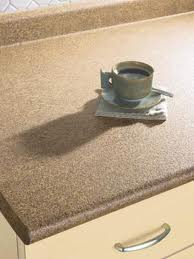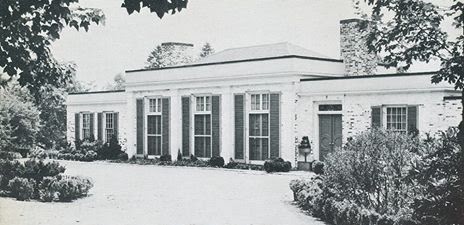The countertop debate
Back in the day....way back....you had formica countertops. Maybe if you lived in New Mexico or Southern California you had tile. Today your choices are seemingly endless. I will attempt to list and explain the differences of the most common options. An educated consumer is the best consumer!
Formica. Most of us grew up with it, we know better than to put a hot pot directly on it (it will melt), and it comes in a million zillion variations of color and pattern. Formica is a brand name, as is Wilsonart.
" Formica was invented in 1912 by Daniel J. O'Conor and Herbert A. Faber, then working at Westinghouse which filed for a patent on it.[1] They originally conceived it as a substitute for mica used as electrical insulation, made of wrapped woven fabric coated with Bakelite thermosetting resin, then slit lengthwise, flattened, and cured in a press. They left Westinghouse immediately afterwards.
Formica. Most of us grew up with it, we know better than to put a hot pot directly on it (it will melt), and it comes in a million zillion variations of color and pattern. Formica is a brand name, as is Wilsonart.
" Formica was invented in 1912 by Daniel J. O'Conor and Herbert A. Faber, then working at Westinghouse which filed for a patent on it.[1] They originally conceived it as a substitute for mica used as electrical insulation, made of wrapped woven fabric coated with Bakelite thermosetting resin, then slit lengthwise, flattened, and cured in a press. They left Westinghouse immediately afterwards.
The name Formica now refers primarily to the decorative product composed of several layers of kraft paper impregnated with melamine thermosetting resin and topped with a decorative layer protected by melamine, then compressed and cured with heat to make a hard, durable surface." Wikipedia
Granite. This is what most all buyers expect and want in a new or even older home. Granite is a natural material that is mined all over the world and comes in many variations of pattern and color. Granite is "graded" according to the most common (grade 1) to the most extraordinary. It is stain and heat resistant and relatively easy to find and have installed. Granite can be finished honed (matte finish) or polished. The honed is a bit more difficult to maintain. Don't forget to ask to go into the granite yard to hand pick your slab. Also, small projects can many times be done from the scraps of from large projects. I did my whole house from the scrap yard and got very high grade granite at a fraction of the cost.
Marble. Also a natural material and mined all over the world, we are all familiar with marble floors in historic and government buildings. Marble as a kitchen countertop is highly favored by home bakers for it's cool qualities, but does have a tendency to scratch and stain easily than granite. Anything red (wine or tomato sauce) is the prime culprit for ruining the pristine look of marble. I just put in a marble shower and floor in my master bath, but used granite for the counters.
Quartz. Another natural stone. Slabs of quartz are very rare and very expensive. One one only use these in ver high end applications. The quartz we commonly see used as countertops is a man made product using a natural material. The quartz is fused in a slab and then cut just like a granite of marble with many of the same tendencies. Price is similar to a higher end granite and can come in a large variety of colors unavailable in a natural slab. It will be consistent with what you see in the showroom and has very little to no "movement" in the pattern. It is marketed under many brand names.
Concrete. Well that says it all don't you think? Concrete countertops have come a long way, offer tons of options, and can provide a variety of looks. The key here is to find a great vendor that has been doing this a long time.
This pretty much sums it up. You still have tiles, butcher block, and stainless steel options that have been around forever. I personally love the look of a stainless counter in certain applications, and a butcher block island can be extremely useful (and difficult to keep clean and maintain). Lastly, the old soapstone counters from your chemistry lab look great, but require frequent oiling and sealing. You can get the same look with a solid black hone marble. If you think of any I have missed sent me a comment.
Best/DT








There are others I have seen, but are not as prevalent as what you have mentioned. Ultimately you can make counter tops from anything, even paper. PaperStone and Richlite are really good looking products made from recycled paper that have been around for a while now. They are a solid color all the way through so any minor imperfections that might occur typically don't show. Another concept that I really like is glass. These contain recycled glass material that is joined by concrete.
ReplyDelete